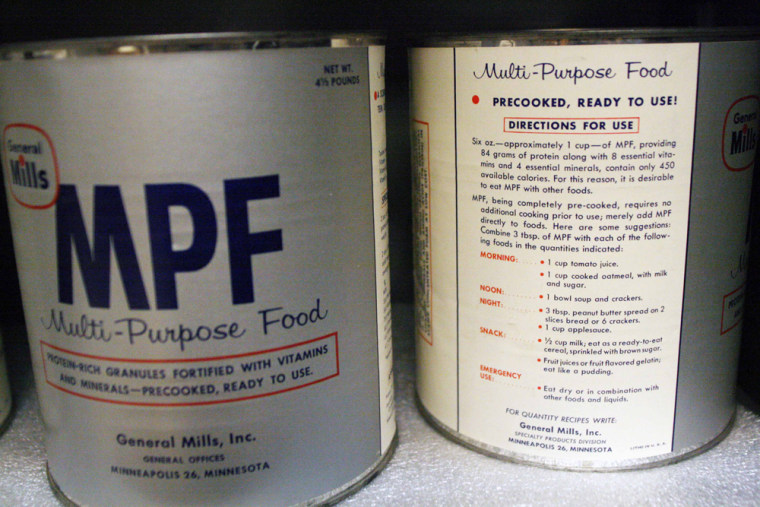There are the extraordinary items: the poster announcing the auction of serial killer Ed Gein's items, Orson Welles' 156-page typed script for "Citizen Kane" and an original speech Abraham Lincoln gave in Milwaukee.
And there are the ordinary items: a drinking glass, a rock and a 6-foot aluminum pole.
All have an exceptional or weird story to accompany them and are featured in the exhibit "Odd Wisconsin," which opened Oct. 3 at the Wisconsin Historical Museum in Madison. The show will run for two years.
Museum curator Joe Kapler said the more than 60 Wisconsin artifacts will be intriguing to anyone with an interest in "curious stories."
"Even if they don't know anything about Wisconsin history or anything about this organization, it is going to be definitely satisfactory," Kapler said. "It's a journey, this exhibition is."
Most items have obvious Wisconsin connections and others don't. All but one item was already in the 152-year-old Wisconsin Historical Society archives. Kapler said the museum surveyed 900 museum-goers early this year to find out their preferences for an exhibition and 58 percent voted for the "odd" theme.
The glass was used by then-presidential candidate Theodore Roosevelt during a 1912 Milwaukee speech he gave hours after a would-be assassin shot him in the chest. The rock, one of several items in the museum's collection that don't have a connection to Wisconsin, was thrown through the window of civil rights leader Daisy Bates of Little Rock, Ark. in 1957 along with a note that read "The next will be dynamite. K.K.K." The pole is a Festivus pole used by current Gov. Jim Doyle in 2005. It's manufactured by The Wagner Cos. of Milwaukee. The poles gained popularity in the show "Seinfeld."
One of the society's most requested images to be reprinted is the poster announcing the Gein auction of items from his Plainfield farm, Kapler said. The grave robber and murderer was arrested in 1957, and his story inspired the movie "Psycho."
There is also the speech Lincoln delivered about free labor and social mobility at the Wisconsin State Fair in Milwaukee in 1859 — two years before he became president. The museum also has the green shawl he wore on his journey from Springfield, Ill., to his inauguration in Washington and during his presidency.
Welles, who died in 1985, was born in Kenosha and went on to write 1941's "Citizen Kane," which is consistently ranked by critics as among the best films ever made. Welles' lawyer donated the tattered script to the historical society.
Then there are items unusual from the 21st century perspective: a wooden X-ray machine that was used in shoe stores (later determined to be too dangerous to use because of the radiation); an oversized hair curling machine with clamps and rods; and crude surgical items that would make anyone cringe. There's also the jar of cream-colored skunk grease made as a home health remedy in Wisconsin's Green County, around 1920.
Erika Janik, author of "Odd Wisconsin: Amusing, Perplexing and Unlikely Stories from Wisconsin's Past" published last year, said odd stories about the state are easy to find. She is also the editor of the historical society's member newsletter and always stumbles on crazy Wisconsin stories.
"I think odd stories tell us a little more about our state's history than some of the standard textbook stories," Janik said.
Other items in the exhibition include:
- A 1513 map of the world, considered one of the earliest printed maps to show the new world.
- An elaborately beaded jacket worn by Wisconsin native Liberace during performances in the late 1970s.
- A 7-foot-long bowie knife given to a Wisconsin congressman at the Republican National Convention in 1860.
- A flag made of bras and fake birth control pills by feminist Marjorie Engelman of Green Bay. She said it was "a symbol for me of the freedom that the feminist movement brought to my life."
- An iron collar removed from a fugitive slave by Wisconsin soldiers in 1862.
- Multi-purpose food cans — the size of paint cans — from a Cold War fallout shelter in Racine in 1960.
